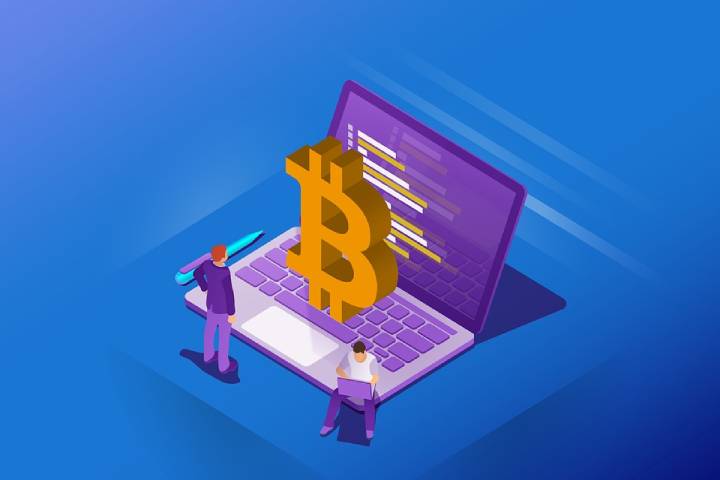Cybersecurity
6 Tips to Advance Your Cybersecurity Career In 2023
Cybersecurity is a specialized field. We’ll share some valuable tips to advance your cybersecurity career in 2023

Cybersecurity is a highly in-demand field with a vast scope for growth, opportunities, and scalability. But it’s a technical and sophisticated field. Success in this occupation depends on in-depth knowledge, hands-on experience, relevant skills, and constant improvement. If you’re inefficient in these areas, you might face career stagnation.
Advancing your career in today’s time has become relatively easier, given the plethora of resources and development avenues. Nonetheless, identifying which routes align with your career advancement prospects can seem challenging. If you belong to the cybersecurity landscape, accelerating career advancement might seem time-consuming, but with the right tips, you’ll attain heights of success in no time.
Below, we’ll share some valuable tips to advance your cybersecurity career in 2023:
Table of Contents
1. Advance Academically
Cybersecurity is a specialized field. As such, aspirants are required to go through a lengthy and extensive academic process to set foot in this sector. A bachelor’s degree will enhance your foundation knowledge and skills, including computer science, information technology, security networks, security threats and assessment, and operating systems.
Comparatively, a master’s degree explores the depths of cybersecurity. You’ll learn about security concepts and applications, cyberspace vulnerabilities and threats, cybersecurity laws and policies, defensive cybersecurity technologies, and network and system administration. Therefore, if you want to excel in your career, earning a higher degree, such as a master’s, is crucial.
Advanced education also provides you with an edge, honing essential skills and capabilities essential to your field. If you’re planning to earn a higher degree alongside work, a master in cyber security online program can prove invaluable. Online masters allow you to manage work and academic responsibilities simultaneously. This way, you’ll be able to propel your career advancement without compromising your professional life.
2. Acquire And Refine Practical Skills
Formal education in cybersecurity offers foundational knowledge and enables you to acquire an entry-level job. But higher-level positions require more refinement and training. With bookish knowledge and limited practical exposure, you cannot tackle this complex and evolving field. Even stringent rules and regulations lay infective in this borderless cyber realm.
Cybercriminals and hackers have become intelligent and innovative with their tricks and techniques. They have learned to bypass, dodge, and crack traditional security countermeasures. Studies show that cyber-attacks increased by 38% in 2022 than the previous year. And each passing year heightens the gravity of cybercrime. So, with beginner-level knowledge and less work exposure, you cannot safeguard your organization or protect digital assets.
Upskilling and reskilling are crucial to remain competitive in the cybersecurity field. Problem-solving, risk assessment, network management, information technology, and network penetration and testing are essential skills. Alongside these, security compliance, cloud computing, and ethical hacking are the most in-demand skills for cybersecurity specialists.
3. Learn And Polish Computer Programming Languages
Computer programming for cybersecurity aspirants is as essential as learning a language in school. You must learn to operate and interact with computers to understand, interpret, manage, and prevent security issues.
Basic training starts with proficiency in C, C++, and Java. But complexity increases as you advance academically and occupationally. For expert-level knowledge and a comprehensive grip on your domain of expertise, you must learn HTML, JavaScript, SQL, PHP, Python, and PowerShell. The more diverse your toolkit and skillset, the better you can understand and manage technical issues.

This approach will also diversify your career paths as you interact with clients. So, flex your hands on some coding whenever you have time if you have long-term ambitions. The good news is that you can learn almost all computer programming languages without spending a penny. You can find countless online resources to learn a new coding language from scratch.
4. Participate In Boot Camps
Since cybersecurity is evolving rapidly, constant improvement is necessary to stay updated. So, if you lack expertise in a particular skill or want to expand your horizons, join boot camps for rapid pace training. Boot camps are training opportunities with a practical focus and narrow scope, where you can learn or polish particular skills. You can participate as an instructor or learner. Either way, you can get diverse exposure and learn from other participants.
Information exchange will enable you to widen your knowledge and understanding of cybersecurity, cyberspace threats, and countermeasures. You will answer or listen to the perspectives of newcomers, aspirants, and cybersecurity specialists. Newcomers and aspirants are more keen and curious about the recent developments that even experts can miss. Their curiosity, questions, and knowledge compel you to think from another perspective and bring innovation to your approach or solutions.
5. Earn Relevant Certifications
While not as effective as a master’s degree, certifications still prove worthwhile. Certification courses are a cost-effective approach to acquiring advanced-level knowledge in no time. Certifications enable you to develop a comprehensive profile for an advanced career position or divert your focus to a specific cybersecurity niche.
For instance, with a Certified Ethical Hacker credential, you can boost your career from an entry-level position to a security investigator, forensics investigator, web security administrator, system security manager, or penetration tester. The more certifications you earn, the more possibilities for career growth.
6. Get Industry Exposure
Industry exposure is a prerequisite for almost every profession. Employers ask for practical exposure even for positions like instructor, teacher, content manager, research analyst, or product developer. Survival in a highly technical occupation like cybersecurity is challenging without exposure and hands-on experience. That’s because cybersecurity issues vary from industry to industry and company to company. The security needs of different firms also diverge over time. Some have phishing problems, while others have espionage issues.
Espionage, malware, ransomware, phishing, insider threat, crypto-jacking, or intellectual property theft may come under the cybersecurity umbrella but require different strategies and countermeasures. So, with your limited knowledge and expertise, you cannot be their evergreen problem-solver. You must possess comprehensive knowledge to become an all-rounded expert. Staying glued to your computer screen for better coding skills is not the only efficient way to innovate sustainable security solutions for your clients. You must learn and explore how security threats evolve and refine your skillset accordingly.
Hence, take the initiative and expose yourself to diverse experiences. Collaborate with other specialists and organizations to understand cybersecurity and cyberspace threats in depth. The more you engage, the faster you’ll learn about innovations and challenges in your field.
Conclusion
Since the job market has become competitive, you cannot survive without upskilling and reskilling. Unqualified and unskilled individuals often fail to maintain an edge in such evolving fields. If you seek career advancement, especially in a rapidly transforming field like cybersecurity, you need to focus on skill development. Earning a higher degree, such as a master’s in cybersecurity, is the best, most viable approach to accelerate career advancement. Through a higher degree, you’re able to hone essential cybersecurity skills and remain on top of changing industry trends and norms. Similarly, industry exposure and learning programming languages will also serve in your favor.
Blockchain
Digital Ghost Money: Understanding Cryptocurrency Value
In this article, we delve into the intricacies of cryptocurrency value, exploring factors that influence it and popular digital assets’ unique value propositions.

Understanding crypto’s value is crucial for investors and enthusiasts alike. In this article, we delve into the intricacies of cryptocurrency value, exploring factors that influence it and popular digital assets’ unique value propositions. A website like https://bitsoftware360.com/ will assist traders in their Bitcoin journey with the best trading tools, fast payouts, and phenomenal customer support.
1. Understanding Cryptocurrency Value
Cryptocurrency value is a complex and dynamic concept that requires a deeper understanding to navigate the digital currency market effectively. To grasp the essence of cryptocurrency value, it is crucial to explore various factors that influence its valuation and the unique dynamics of this decentralized financial ecosystem.
One fundamental aspect that determines the value of cryptocurrencies is market capitalization. Market capitalization refers to the total value of a cryptocurrency, calculated by multiplying the current price per coin with the total supply in circulation. This metric provides an overview of a cryptocurrency’s relative size and significance within the market.
However, market capitalization alone does not provide a comprehensive understanding of cryptocurrency value. Various factors come into play that can significantly impact the value of a digital currency. These factors include supply and demand dynamics, utility and adoption, technological advancements, and regulatory developments.
The supply and demand dynamics of a cryptocurrency play a vital role in its value. Limited supply and increasing demand can drive up the price of a digital asset, while high supply and low demand can have the opposite effect. Additionally, the utility and adoption of a cryptocurrency within real-world applications can contribute to its value. Cryptocurrencies that offer unique functionalities, such as smart contracts or cross-border payment solutions, tend to attract more users and investors, potentially increasing their value.
Technological advancements and innovation also play a significant role in determining cryptocurrency value. Projects that introduce groundbreaking technologies or solve existing challenges within the industry may gain attention and value. Additionally, news and regulatory developments can have a substantial impact on the value of cryptocurrencies. Positive regulatory developments, such as increased acceptance or favorable regulations, can boost investor confidence and drive up prices, while negative news or restrictive regulations may lead to a decline in value.

It is important to note that cryptocurrency markets are highly volatile. Prices can experience rapid fluctuations within short periods, presenting both opportunities and risks for investors. Understanding and managing the risks associated with cryptocurrency investments is essential to navigate this volatile landscape effectively.
2. Popular Cryptocurrencies and Their Value Propositions
Ripple (XRP) is a cryptocurrency designed for fast and low-cost cross-border transactions. Its value proposition lies in its ability to facilitate seamless transfers of value between different currencies and financial institutions. Ripple’s technology, known as the XRP Ledger, enables near-instant settlement times and reduces transaction costs significantly compared to traditional banking systems. This makes Ripple an attractive choice for international remittances and other forms of global money transfers.
Litecoin (LTC) is often considered the silver to Bitcoin’s gold. It was created as a “lite” version of Bitcoin, with faster block generation times and a different hashing algorithm. Litecoin’s value proposition revolves around its ability to process transactions more quickly and with lower fees compared to Bitcoin. This makes it more suitable for everyday transactions and enhances its potential as a digital currency for daily use.
Binance Coin (BNB) is the native cryptocurrency of the Binance exchange, one of the largest and most popular cryptocurrency exchanges globally. BNB’s value proposition stems from its utility within the Binance ecosystem. Users can utilize BNB to pay trading fees, participate in token sales on the Binance Launchpad, and access various other services offered by the exchange. The increasing adoption of the Binance platform has contributed to the growing value and demand for BNB.
Cardano (ADA) is a blockchain platform that aims to provide a secure and sustainable infrastructure for the development of decentralized applications (DApps) and smart contracts. Cardano’s value proposition lies in its scientific approach to blockchain technology, focusing on peer-reviewed research and rigorous development principles. By prioritizing security, scalability, and sustainability, Cardano aims to provide a robust platform for the creation of innovative DApps and the execution of complex smart contracts.
Conclusion
As the world embraces the potential of digital currencies, comprehending cryptocurrency value becomes increasingly important. Market capitalization, supply and demand dynamics, utility, technology, and regulatory developments all shape the value of cryptocurrencies. By grasping these factors, individuals can navigate this dynamic landscape with greater confidence and make informed decisions about their investments.
-

 Instagram2 years ago
Instagram2 years agoBuy IG likes and buy organic Instagram followers: where to buy them and how?
-

 Instagram2 years ago
Instagram2 years ago100% Genuine Instagram Followers & Likes with Guaranteed Tool
-

 Business4 years ago
Business4 years ago7 Must Have Digital Marketing Tools For Your Small Businesses
-

 Instagram3 years ago
Instagram3 years agoInstagram Followers And Likes – Online Social Media Platform

















